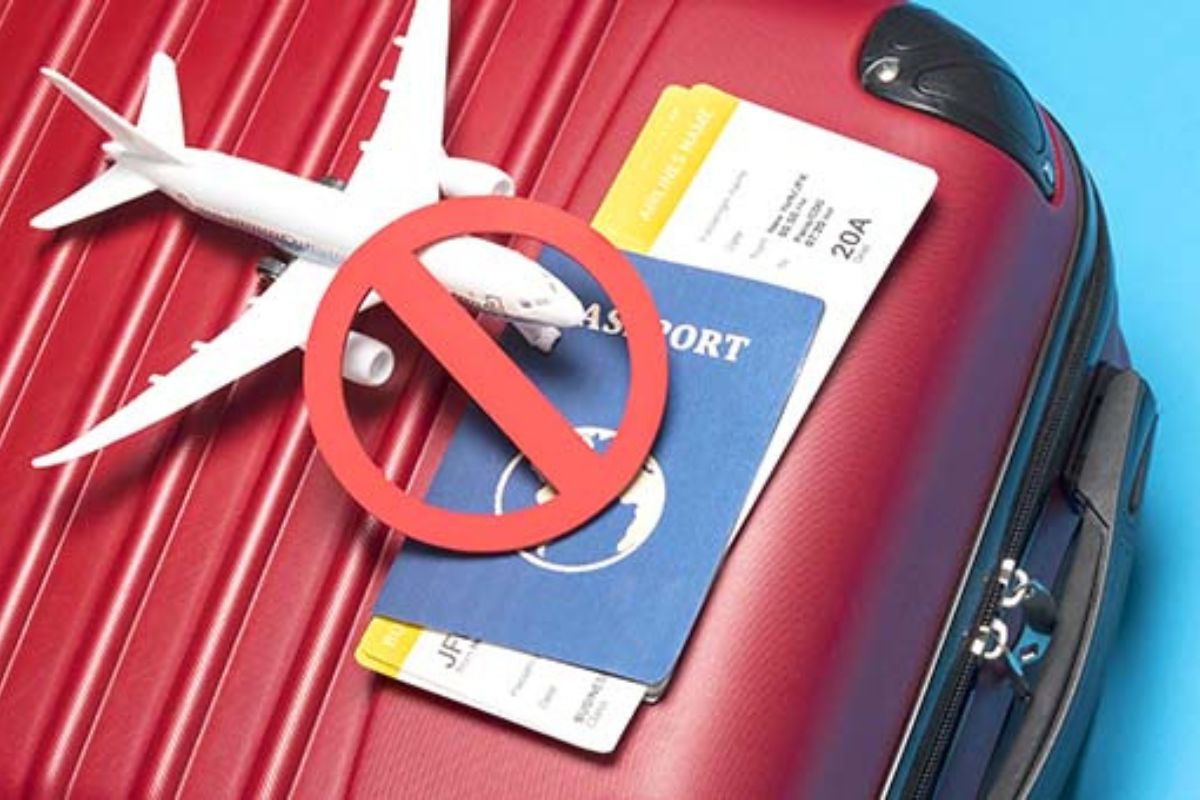Financial support abroad often includes an allowance to cover travel expenses. This allowance is crucial for individuals or employees who need to travel internationally for work, study, or other purposes. It typically encompasses various costs associated with traveling, such as airfare, accommodation, meals, transportation, and visa fees.
The amount allocated for travel expenses can vary depending on the organization’s policies, the duration and purpose of the trip, and the destination’s cost of living. In some cases, organizations may provide a fixed amount for each expense category, while others may offer a lump sum for the entire trip.
An allowance for travel expenses abroad not only ensures that individuals have the financial means to undertake their journeys but also promotes efficiency and productivity by minimizing financial burdens and logistical challenges. It enables travelers to focus on their
objectives without worrying about the costs of transportation, lodging, or other essentials. Moreover, providing adequate financial support for travel demonstrates an organization’s commitment to the well-being and success of its employees or members, fostering loyalty and satisfaction.
However, it’s essential for both the organization and the travelers to adhere to guidelines and budget constraints to ensure responsible and effective use of allocated funds. Overall, a well-designed allowance for travel expenses abroad facilitates smooth and successful international ventures while enhancing the overall experience for those involved.
Travel expense allowance coverage.

Travel expense allowance coverage refers to the financial support provided to individuals for covering the costs associated with traveling. This coverage typically encompasses various expenses incurred during a trip, including airfare, accommodation, meals, transportation, and visa fees. The purpose of providing travel expense allowance coverage is to ensure that individuals have the necessary funds to undertake their journeys without facing financial constraints.
The extent of coverage can vary depending on factors such as the organization’s policies, the purpose and duration of the trip, and the destination’s cost of living. Some organizations may offer a fixed allowance for each expense category, while others may provide a lump sum amount to cover the entire trip.
Travel expense allowance coverage plays a crucial role in facilitating smooth and successful travel experiences. By alleviating financial burdens, it allows travelers to focus on their objectives and responsibilities during the trip. Moreover, adequate coverage demonstrates an organization’s commitment to supporting its members or employees and promoting their well-being.
However, it’s important for both the organization and the travelers to adhere to guidelines and budget constraints to ensure responsible use of the allocated funds. Proper management of travel expense allowance coverage helps maintain financial transparency and accountability while maximizing the benefits for all parties involved.
Exclusions travel and Limitations.
Exclusions and limitations in travel insurance policies are crucial aspects that travelers need to understand to ensure they have adequate coverage for their trips.
Exclusions typically refer to situations or events for which the insurance policy does not provide coverage. Common exclusions in travel insurance may include pre-existing medical conditions, injuries sustained while participating in certain high-risk activities such as extreme sports, or losses resulting from war or acts of terrorism. It’s essential for travelers to review these exclusions carefully to avoid any surprises when making a claim.
Limitations, on the other hand, set boundaries on the extent or amount of coverage provided by the policy. This could include limits on the maximum amount payable for medical expenses, trip cancellation reimbursements, or coverage for lost or delayed baggage. Travelers should be aware of these limitations to ensure they have realistic expectations about the protection offered by their insurance policy.
Understanding both the exclusions and limitations of a travel insurance policy is crucial for travelers to make informed decisions and adequately prepare for their trips. It’s advisable to carefully read the policy document or consult with the insurance provider to clarify any doubts and ensure that the coverage meets the specific needs and requirements of the traveler.

Trip reimbursement refers to the process of receiving financial compensation for expenses incurred due to a canceled or interrupted trip. This reimbursement typically covers various costs associated with travel arrangements, such as airfare, accommodation, transportation, and other prepaid expenses.
The need for trip reimbursement may arise from various circumstances, including unforeseen events such as illness or injury, family emergencies, natural disasters, or travel advisories issued by authorities. When faced with such situations, travelers may be forced to cancel their plans or cut short their trip, resulting in financial losses.
Travel insurance policies often include trip reimbursement coverage, offering protection against these unforeseen events. However, the extent of coverage and eligibility criteria may vary depending on the insurance provider and the specific policy purchased.
To initiate the trip reimbursement process, travelers typically need to submit a claim along with supporting documentation, such as medical reports, police reports, or proof of cancellation. The insurance provider will then assess the claim and reimburse the eligible expenses according to the terms and conditions of the policy.
Trip reimbursement provides travelers with financial peace of mind, allowing them to recover at least some of the expenses incurred due to unforeseen circumstances. It serves as a valuable safety net, especially when planning trips involving significant financial investments, and helps mitigate the risks associated with travel uncertainties.
What is a travel allowance plans?
A travel allowance plan is a structured arrangement established by an organization to provide financial assistance to individuals for their travel-related expenses. This type of plan is commonly implemented by employers for their employees who are required to travel for work purposes, but it can also be offered by educational institutions, government agencies, or other organizations for various reasons such as business trips, academic conferences, or cultural exchanges.
The travel allowance plan typically outlines the terms and conditions under which individuals can access financial support for their trips. This may include details such as the types of expenses covered (e.g., airfare, accommodation, meals, transportation), eligibility criteria, reimbursement procedures, and any limitations or restrictions.
Travel allowance plans can vary widely depending on the organization’s policies and the nature of the travel involved. Some plans may provide a fixed allowance amount for each expense category, while others may offer a lump sum for the entire trip. Additionally, the allowance amount may be influenced by factors such as the destination’s cost of living, the duration of the trip, and the individual’s position or role within the organization.Overall, travel allowance plans aim to facilitate smooth and cost-effective travel experiences for individuals while ensuring compliance with organizational guidelines and budgetary constraints. They help alleviate financial burdens associated with travel and promote efficiency and productivity by allowing individuals to focus on their objectives without worrying about the costs involved.
Vacation travel coverage.
Vacation travel coverage refers to the insurance protection provided to travelers to mitigate financial risks associated with unexpected events or emergencies during their vacations. This type of coverage typically includes various components aimed at addressing different aspects of travel-related risks:

.Trip Cancellation Coverage.
This component reimburses travelers for prepaid, non-refundable expenses if they are unable to embark on their trip due to covered reasons such as illness, injury, death of a family member, or severe weather conditions.
. Trip Interruption Coverage.
In the event that a trip is cut short due to covered reasons, such as a medical emergency, travelers may be reimbursed for the unused portion of their trip and any additional expenses incurred to return home early.
.Travel Medical Insurance.
This coverage provides financial protection for medical expenses incurred while traveling, including emergency medical treatment, hospitalization, and medical evacuation.
.Baggage and Personal Belongings Coverage.
If luggage or personal belongings are lost, stolen, or damaged during the trip, this component of coverage reimburses travelers for the cost of replacing essential items.
.Travel Assistance Services.
Many vacation travel coverage plans also include access to 24/7 travel assistance services, such as medical assistance, emergency evacuation, legal assistance, and concierge services.
Vacation travel coverage is essential for travelers to safeguard their financial investment in the trip and to ensure peace of mind in the face of unforeseen events or emergencies. It’s important for travelers to carefully review their coverage options, understand the terms and conditions of their policy, and choose a plan that aligns with their specific travel needs and preferences.
What is the benefits exclusions travel?
“User Exclusions” typically refers to restrictions or limitations placed on certain individuals or groups regarding the usage or access to specific services, products, or resources. In the context of travel, “User Exclusions” could pertain to restrictions placed on certain travelers regarding their eligibility for certain travel benefits or services.
For instance, within a travel insurance policy, “User Exclusions” might refer to specific conditions or circumstances under which coverage is not extended to certain categories of travelers. These exclusions could include individuals with pre-existing medical conditions, travelers engaging in high-risk activities, or those traveling to regions with heightened security risks.
Understanding these user exclusions is crucial for travelers to ensure they are adequately covered for their specific needs and circumstances. It’s important to carefully review the terms and conditions of any travel-related services or products to determine if there are any exclusions that may impact one’s eligibility or coverage. Additionally, travelers may consider seeking alternative options or supplemental coverage to address any limitations imposed by user exclusions.

Travel Insurance exclusions Policies.
Travel insurance exclusions are conditions or situations specified in the policy where coverage will not be provided. These exclusions are important to understand as they outline the circumstances under which the insurance company will not be liable to reimburse the traveler for losses or expenses incurred during their trip.
Common exclusions found in travel insurance policies include:
Pre-existing medical conditions. Many travel insurance policies do not cover medical expenses related to pre-existing conditions unless specifically stated otherwise or unless additional coverage is purchased.
High-risk activities. Certain adventurous or extreme activities such as skydiving, bungee jumping, or mountaineering may not be covered under standard travel insurance policies. Travelers engaging in such activities may need to purchase additional coverage or seek specialized insurance.
Intentional acts. Losses resulting from intentional or illegal actions by the traveler, such as reckless behavior or participation in criminal activities, are typically excluded from coverage.
War or terrorism. Travel insurance policies often exclude coverage for losses or injuries resulting from acts of war, terrorism, or civil unrest in the destination country.
Exclusions related to travel advisories.Some policies may exclude coverage for trips to destinations with travel advisories issued by government authorities warning against non-essential travel due to safety concerns.
It’s essential for travelers to carefully review the exclusions listed in their travel insurance policies to understand the limitations of coverage. In some cases, travelers may be able to purchase additional coverage or riders to address specific exclusions relevant to their trip. Additionally, consulting with the insurance provider or a knowledgeable agent can help clarify any questions about policy exclusions before purchasing travel insurance.
Frequently Asked Questions.
What does travel insurance cover?
Travel insurance typically covers expenses related to trip cancellations, interruptions, or delays, emergency medical treatment, medical evacuation, and lost or delayed baggage. Coverage may vary depending on the policy and provider. It’s essential to review the terms and conditions of the policy to understand the extent of coverage.
What’s the best travel insurance?
The best travel insurance depends on individual needs and preferences, including trip duration, destination, and specific coverage requirements. Some reputable providers include Allianz Global Assistance, World Nomads, and Travel Guard. It’s crucial to compare policies to find one that offers adequate coverage at a reasonable price.
